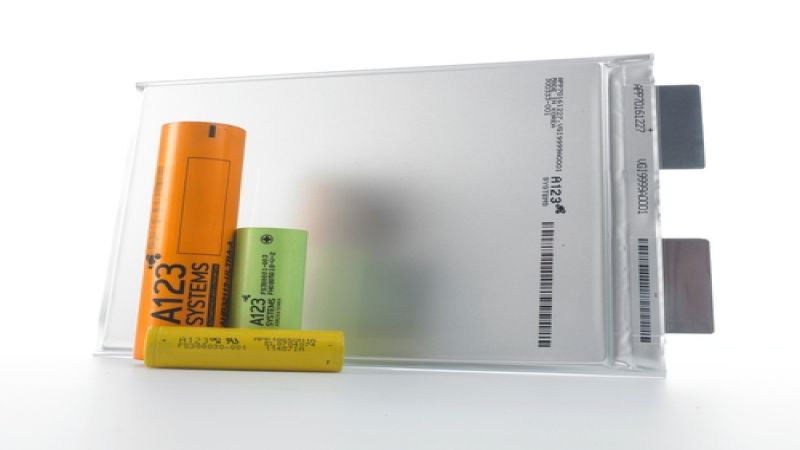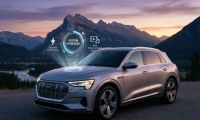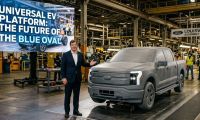Chinese owned autoparts maker Wanxiang America has completed the purchase of bankrupt A123 Systems, forming A123 Systems LLC, while Navitas Systems has bought the government-related assets from A123. This ends a long saga for the once darling high-tech lithium-ion battery design start-up, whose bright dreams began to crumble a little over a year ago when manufacturing defects caused deep problems for Fisker Automotive.
The deal, which recently was approved by the Committee on Foreign Investment in the United States (CFIUS), includes A123’s automotive, grid and commercial business assets, including technology, products, customer contracts and U.S. facilities in Michigan, Massachusetts and Missouri; its manufacturing operations in China; and its equity interest in Shanghai Advanced Traction Battery Systems Co., A123’s joint venture with Shanghai Automotive. Excluded is A123’s Ann Arbor, Mich.-based government business, including contracts with the U.S. military. This portion of A123's business was acquired by Navitas Systems.
“We are excited to add A123 Systems to our growing portfolio of companies as we continue to expand on our strategy of investing in the automotive and cleantech industries in the U.S.,” said Pin Ni, president of Wanxiang America. “A123 will continue to offer cutting-edge technology for vehicle electrification and grid-scale energy storage, strong manufacturing and systems engineering capabilities and a world-class R&D team. Wanxiang America will continue to foster the technologies A123 has worked so hard to develop, and we believe this combination positions A123 for long-term success. We’d also like to thank Dave Vieau for his years of dedication and service to A123.”
A123 Systems LLC will focus on three market areas: Transportation - The company will continue its work in the automotive market, but expand beyond electric and hybrid vehicles. They see a new market opportunity in start-stop microhybrid applications. Grid Energy Storage - A123 is one of the battery makers who has been expanding into grid energy storage systems that are expected to play a huge role in the smart grid future. Lead Acid Replacement - With the right packaging and support electronics, lithium-ion batteries can replace lead-acid batteries with higher performance, longer life and lower total cost of ownership.
The automotive customers mentioned by A123 Systems in their press release are the ActiveHybrid 3 and ActiveHybrid 5 HEVs from BMW, the Chevrolet Spark EV from General Motors, and the Roewe 550 plug-in HEV and Roewe E50 EV from Shanghai Automotive, China’s largest automaker. Curiously missing from that list is Fisker Automotive, whose Fisker Karma uses battery packs built by A123 Systems. Fisker has reportedly been unable to build any Karma's since A123's bankruptcy process began last September-October. Fisker also sought to have the bankruptcy process delayed, and position itself as an unsecured creditor.
Fisker is urgently seeking partners and investment including from Wanxiang. Reportedly Wanxiang is seeking to invest in Fisker, and not to buy the company outright.
The Strategic Materials Advisory Council has reiterated their opposition to Wanxiang's purchase of A123 Systems. A part of the A123 Systems was to sell battery packs to the U.S. Military, making that company a supplier of military equipment. “This disappointing decision represents a 180-degree reversal by the Obama administration in just 8 days, from the President’s Inaugural pledge to no longer ‘cede to other nations’ critical energy technology,” Council Co-chair and former Army Acquisition Executive, Dean Popps said. “Far from protecting America’s lead, as the President promised on the West Front of the Capitol, his administration has just allowed China to leapfrog the world in advanced batteries at the expense of American taxpayers. The approved sale marks yet another step in the coordinated strategy by foreign countries to acquire leading US companies who are researching, developing and producing critical technologies. CFIUS itself has recognized this strategy but it appears they continue to fail to do anything to prevent it.””
The problems for A123 began last winter when A123 and Fisker Automotive jointly disclosed problems with battery packs that resulted in Fisker launching a recall to replace those battery packs. This and other problems, including the embarrassing incident with a Fisker Karma owned by Consumer Reports, led to an expensive "field campaign" whose cost blew up A123's financial balance sheet. Despite several pieces of bright news, such as the Nanophosphate EXT technology, A123 was unable to maintain itself as a going concern and filed for bankruptcy protection in October 2012.
At one time Johnson Controls was slated to take over A123 Systems, but in the end Wanxiang outbid Johnson.
Set Torque News as Preferred Source on Google










